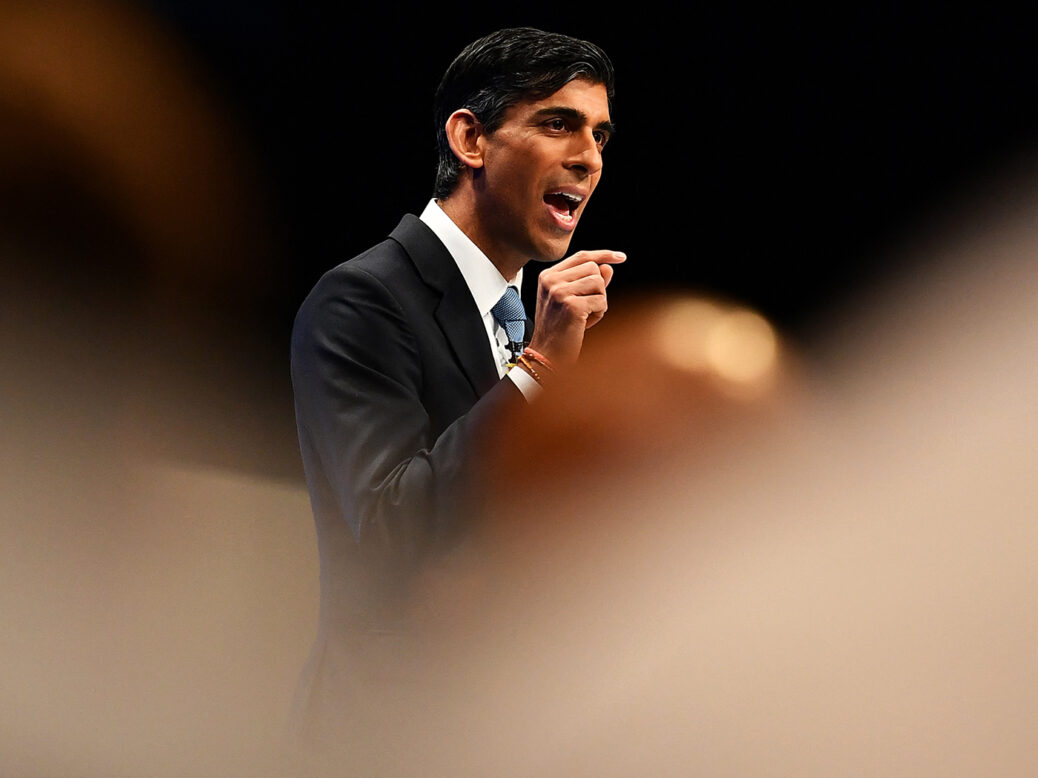
Familiarity, as any couple knows, breeds contempt. So it is with the UK and its politicians. Data from YouGov, the polling firm – collated below by the New Statesman – makes that clear. The British public dislikes almost every leading political figure that a majority of voters can identify. There is only one current exception: Rishi Sunak, the UK’s Chancellor since February 2020, and the market favourite to be the country’s next prime minister.
YouGov collects two essential data points on many public figures, from celebrities to politicians. One piece of data (“fame”) measures a person’s name recognition. By pairing two other numbers that YouGov collects, it is also possible to gauge someone’s net approval or overall popularity among the public. The data for an assortment of leading Labour and Tory politicians, past and present, is shown below.
The higher someone appears on the graph, the more well known they are. Unpopular politicians appear to the left of the graph, while popular politicians appear to the right of the centre line.
These two graphs for each party show a very similar dynamic. When politicians are only familiar to a minority of the public, they are likely to have a small positive net rating: they are not yet well-known enough to be disliked. But as their name recognition rises, they tend to move to the left of the graph. By the time many politicians become known by almost all voters, they have lurched far to the left of the graph – ie, they have become deeply unpopular.
This includes many of the figures who have shaped British politics over the past 25 years: from former prime ministers (Tony Blair, David Cameron) to pivotal ministers (George Osborne, Michael Gove) and insurgent party leaders (from Jeremy Corbyn to Nigel Farage and Nicola Sturgeon, who are not plotted in either graph but are also both overwhelmingly disliked: they have net disapproval ratings of -29 and -24 per cent respectively).
The reality is that the British prefer almost anyone to a politician – as the journalist Michael Wolff and I discussed recently.
There are, however, a few notable exceptions to this general rule. On the Labour side, three politicians are familiar to a majority of voters and have a net approval rating (ie, they appear in the upper-right of the graph): two are married to one another, Ed Balls and Yvette Cooper; the third is Andy Burnham.
The popularity of all three, however, is somewhat qualified. When I mentioned Balls’s popularity to him a few months ago, he pointed out that his standing was a product of him no longer being a politician (he is now better-known and liked for being a TV personality). Cooper, meanwhile, is narrowly popular, but she is also not well known; the trend-line for other politicians suggests that she will lose popularity as she becomes more familiar to voters (a trend she could also buck).
Then there is Burnham. Like Cooper, he was defeated in the 2015 Labour leadership contest; he also, like Balls, lost in the 2010 contest – all three of these nominally popular figures are failed candidates for their party’s leadership. Nevertheless, Burnham is now popular, with a greater net rating than any other prominent political figure.
But he is also now only a regional politician. As Mayor of Manchester he is in a position to adopt popular positions (opposing the government in defence of his city and region) without having to make the unpopular decisions that define national politics. His popularity may fade quickly were he to re-enter the national political arena, where he did not previously thrive. Thus, his surface popularity is perhaps less threatening than it appears to Keir Starmer, who is even less popular with the public than Ed Miliband.
That leaves us with Conservative politicians, among whom only Sunak is both well known and popular. Liz Truss, Sunak’s clearest rival as Boris Johnson’s potential successor, is narrowly unpopular with the public, despite her being the most popular cabinet minister among Conservative members. Johnson himself is also unpopular – and probably more unpopular today than suggested by this data, which averages out opinion over a rolling three-month period (Johnson’s popularity has nosedived in the past month).
For now, Sunak reigns supreme in an uncompetitive field. But his popularity will be increasingly tested over the next year as he balances his wish to cut taxes with the need to raise enough revenue to fund public services and reduce Britain’s considerable national debt. (Inflation is rising, which will likely cause interest rates to rise – increasing the interest payments Britain has to pay on that debt.) The unpopularity of politicians is the apparent law of political gravity; Sunak may only evade it for so long.
[See also: How unpopular is Tony Blair?]





